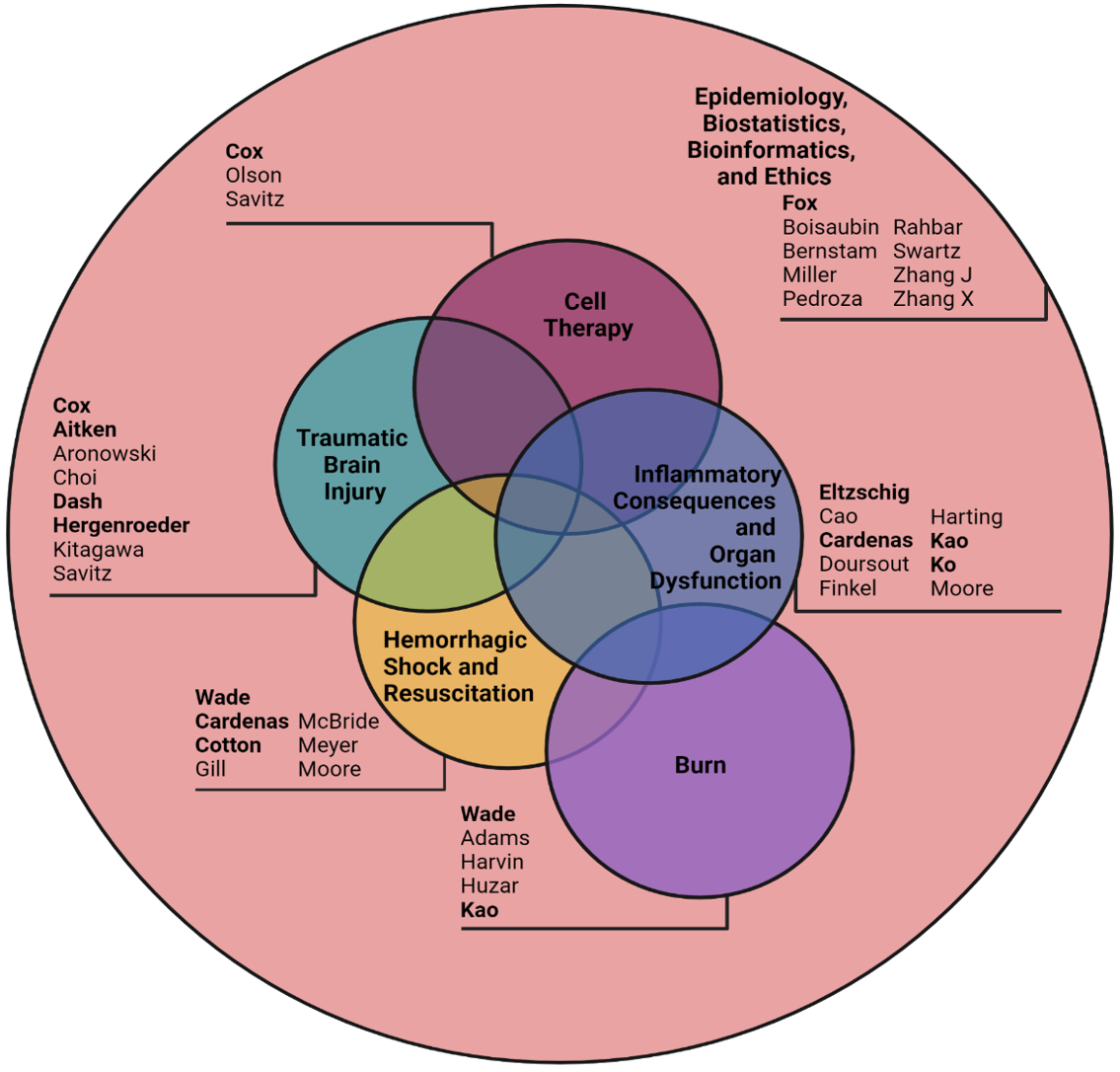Faculty Mentors

Program Director, T32 Program
George & Cynthia Mitchell Distinguished Chair in Neurosciences, Department of Pediatric Surgery
Director, Program in Children’s Regenerative Medicine, Department of Pediatric Surgery
Co-Director, Texas Trauma Institute
Research Areas of Interest:
- Injury and the physiological consequences of resuscitation
- Novel cellular therapies for neurological trauma
- Immunomodulation of the inflammatory response to TBI
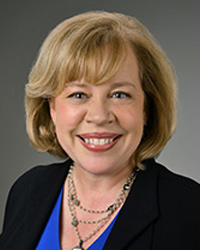
Professor and Chair, Department of Pediatrics
Dan L. Duncan Distinguished University Chair in Pediatrics
Pediatrician-in-Chief, Children’s Memorial Hermann Hospital
Research Areas of Interest:
- Primary prevention of pediatric injury, including major injury mechanisms that disproportionately impact the health of rural and low-income children
- Develop novel approaches to community-based injury prevention in the areas of safe sleep, all-terrain vehicles, and booster seat use
- Prevention of TBI in at-risk families
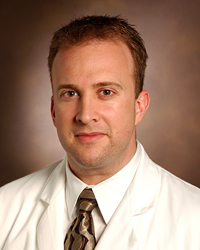
Professor, Department of Surgery
John B. Holmes Professor in Clinical Sciences, Department of Surgery
Director, Surgical Critical Care Fellowship
Co-Director, Shock-Trauma ICU at Memorial Hermann -TMC
Research Areas of Interest:
- Massive transfusion protocol development
- Early identification of patients who will require large amounts of blood and blood products
- Rapid and optimal correction of the acute coagulopathy in trauma and defining end-points, or more specifically, futility points (lab values) for those receiving large amounts of blood and blood products
- Identify the appropriate timing and balance of anticoagulation and venous thromboembolism prophylaxis in severely injured patients who are hypocoagulable and bleeding on admission

Chair, Department of Neurobiology and Anatomy
Nina and Michael Zilkha Distinguished Chair in Neurodegenerative Disease Research
Research Areas of Interest:
- Goal of reversing the consequences of spinal cord injury, brain injury, and neurological disorders
- Cellular and molecular mechanisms underlying neural plasticity and memory dysfunction following TBI
- Identifying prognostic and diagnostic biomarkers for neurological diseases including TBI
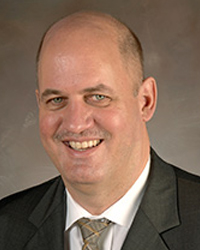
Chair, Department of Anesthesiology
John P. and Katherine G. McGovern Distinguished University Chair
Professor, Anesthesiology, Surgery, and Biochemistry
Associate Vice President, Translational Medicine
Director, Center for Perioperative Medicine
Research Areas of Interest:
- Study perioperative organ injury, including cell culture, hypoxia exposure, basic immunologic approaches, and a wide range of animal models of organ injury
- Endogenous adaptive pathways that are controlled by hypoxia-inducible factors

Professor, Department of Surgery
Research Areas of Interest:
- Traumatic Brain Injury
- Inflammation
- Hemorrhage and Resuscitation
- Medical Device Engineering
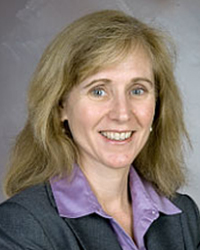
Associate Professor, Department of Neurosurgery
Research Areas of Interest:
- Improving patient outcomes after spinal cord and brain injury
- Biomarker discovery in order to predict which patients may benefit from future intervention
- Relationship between antibodies and the development of neuropathic pain
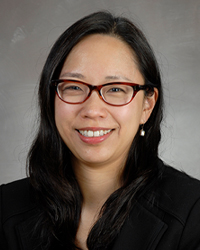
Professor, Department of Surgery
Division Director, Division of Acute Care Surgery
John B. Holmes Professor of Clinical Sciences
Co-Founder and Co-Director, Center for Surgical Trials and Evidence-based Practice (C-STEP)
Research Areas of Interest:
- Soft tissue infections
- Comparative effectiveness research, quality improvement, and implementation of evidence-based practices
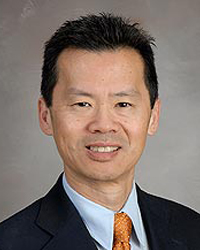
Jack H. Mayfield Distinguished Professor of Surgery
Associate Dean for Harris Health Programs
Division Director, Division of General Surgery/LBJ
Research Areas of Interest:
- Cell signaling and transduction during traumatic injury
- Organ dysfunction
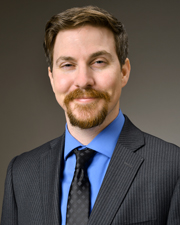
Associate Professor, Department of Pediatric Surgery
Program in Regenerative Medicine
Research Areas of Interest:
- Mesenchymal stem cells in cellular therapies to immunomodulate and restore homeostasis
- As part of our global effort to identify the best candidate for cellular therapies, we are working with a number of similar but different MSC and MSC-like cells derived from different tissues and even commercial sources.
- We are focusing upon MSC interactions with specific immune cell populations derived from both circulating peripheral blood mononuclear cells and leukocytes that reside in the spleen.
Trauma Research Areas of Focus
